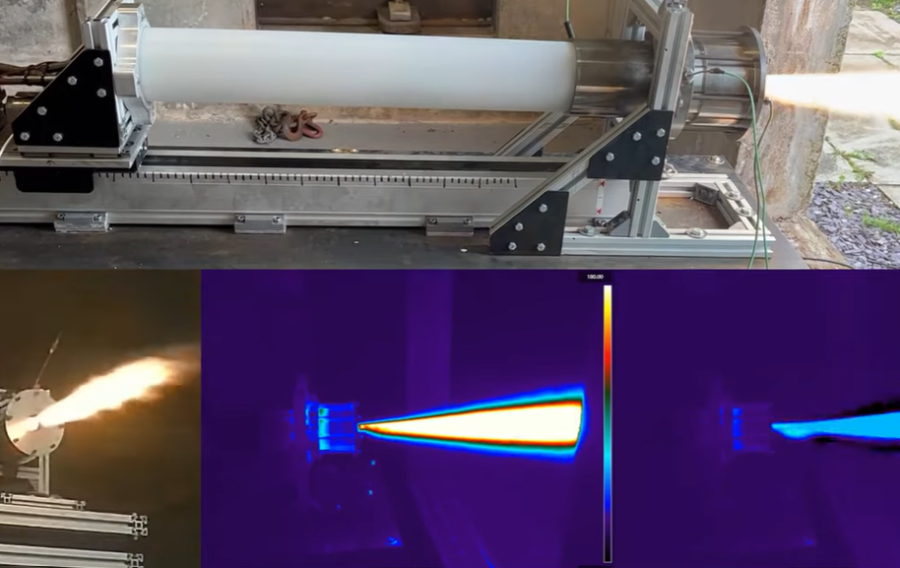
Conventional rockets reduce their weight post-launch through staging, where each stage functions as an independent launch vehicle capable of handling the weight of the stage above it, using up its fuel, disconnecting, and dropping away on a step-by-step basis.
However, an autophage (Latin for self-eating) rocket uses up its own fuselage, as fuel, on a continuous basis. This refined solution allows freed-up mass to be used for payloads instead.
Thanks to funding from DASA, and the ingenuity of engineers from the University of Glasgow, this innovative concept has become closer to reality.
A small rocket with a big appetite
Engineers at the University of Glasgow have been developing the autophage rocket concept since 2016, and first sought funding from DASA through the Open Call in 2019. Here, DASA’s flexible and outcome-focused approach, emphasising collaboration and adapting through incremental progress, greatly benefited the small engineering team with limited resources. This approach provided them with the flexibility to develop their idea over the next few years.
The team encountered various engineering obstacles, including maintaining the fuselage’s structural integrity during injection, and combining the structural fuel with other liquid propellants. The team explored options such as improving the engine inlet to streamline propellant injection, incorporating methods such as pulse combustion to generate pressure spikes for easier fuselage insertion.
On working with DASA, Professor Patrick Harkness, of the University of Glasgow’s James Watt School of Engineering, said: “Our team enjoyed working with DASA. The discussion of our idea and the submission of our proposal was very collaborative, and delivery felt like a shared endeavour with positive contributions from all sides. The autophage concept seems to offer a more continuous solution to the Tsiolkovsky equation, compared to the traditional staged approach, and we’re looking forward to translating that into payload in the years ahead.”
Rocket Scran
Fast forward to 2023, and the team at the University of Glasgow successfully test-fired the novel, self-supporting autophage engine.
The trial happened in July 2023 at the MachLab facility in Machrihanish Airbase. During the test, a rocket engine generating 100 newtons of thrust utilised waste combustion heat to melt its polyethylene plastic fuselage. The melted fuselage plastic was then directed into the engine’s combustion system, effectively producing extra fuel to complement its liquid propellant.
The test not only demonstrated that molten polyethylene can serve as a fuel source, but also that the plastic fuselage proved capable of enduring the necessary forces to deliver the fuel to the engine, which is a crucial aspect in creating a feasible flight concept. During the test, the team also demonstrated the ability to control, throttle, and restart the autophage rocket’s burn, which is another capability that will be required in the future.
Igniting innovation: what’s next?
The successful test-firing of the autophage engine demonstrates significant potential for developing launch vehicles designed for smaller payloads. As the innovative approach transforms “dead mass” into fuel, it effectively generates extra energy and addresses mass-related issues encountered during small-scale rocket launches, such as nano satellites.
The University of Glasgow engineers will further develop the autophage engine with backing from the UK Space Agency (UKSA) and the Science and Technology Facilities Council (STFC), which is part of UK Research and Innovation (UKRI). The next milestone of the project aims to reach up to 1 kilo newton of thrust. After that, the team will focus on enhancing the engine design even more to reach thrust levels comparable for flight.
If you would like to join our community and read more articles like this then please click here








